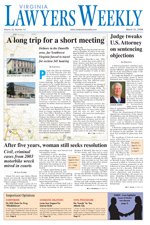Overruling a 68 year-old precedent, the Supreme Court of Virginia has uprooted a rule that limited a neighbor’s remedies when confronted by the tree next door.
In a case from Fairfax Circuit Court, Richard Fancher sued townhouse neighbor Joseph Fagella, alleging the spreading root system of a sweet gum tree in Fagella’s back yard had clogged Fancher’s sewer system, and undermined his foundation, backyard patio and a retaining wall.
Based on the 1939 case of Smith v. Holt, the circuit judge denied injunctive relief. Smith said a landowner could only use self-help remedies against intrusive roots and branches from a neighbor’s plantings, if the encroaching vegetation is not “noxious in nature” and causes no “sensible injury.”
But the high court said today “noxious” depends on the viewpoint of the beholder, citing poison ivy and kudzu as questionable flora.
Adopting the more modern “Hawaii rule,” the Supreme Court said that encroaching trees and plants that cause actual harm or pose an imminent danger of actual harm to adjoining property may be regarded as a nuisance, and their owner may be required to cut back or remove the plant material.
The appellate court remanded Fancher v. Fagella for consideration of injunctive relief along with Fancher’s claim for damages.
Subscribe to:
Post Comments (Atom)

No comments:
Post a Comment